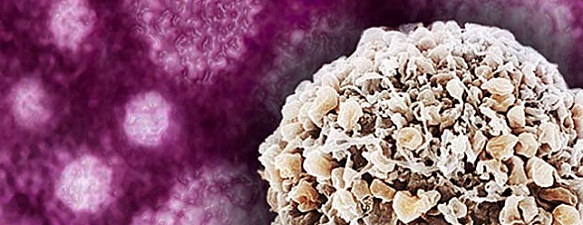
What is HPV and can it be treated?
You’ve almost certainly heard of the human papilloma virus (HPV), but perhaps you’re a little unclear about the specifics of this group of viruses, of which there are several types.
The majority of women will test positive for HPV at some point in their lives, and in most cases the HPV will be low-risk. If you test positive for HPV, the chances of this leading to cervical cancer are small?. Especially if you have regular smear tests, which will be able to identify any abnormalities in the cervix.
To avoid some of the mystery and stigma surrounding the virus (and arm you with the all important facts) we take a look at what HPV is, how it spreads, what the symptoms are and how it can be treated.

Which parts of the body does HPV infect?
Your skin and your body’s moist membranes such as the throat and mouth, cervix, vagina, vulva and anus.
Is HPV easy to catch?
Yes. And it shouldn’t be a cause for shame or embarrassment. It’s spread by skin-to-skin contact and is the most common sexually transmitted infection. It’s not only passed on through sexual intercourse, though – any sort of sexual activity, including oral sex, can spread the virus. Which is why it’s so common.
Are there different types of HPV?
Yes, more than 200. Thankfully, only a few of these are high-risk.
So, what are the symptoms of HPV?
In most cases, there aren’t any. And most infections will clear up with the help of your body’s immune system – so you could test positive one month and then have no trace of the virus in your body the next month. Which is why in most instances, when you have HPV, you’ll be unaware that you have it at all.
What can HPV cause?
Low-risk HPV can cause genital warts. But high risk HPV can cause cervical cancer.
Also, because the virus infects your body’s moist membranes, in some instances HPV can lead to throat and mouth cancer. And although smoking and drinking alcohol are still the main causes of these cancers, an increasing percentage are caused by a presence of HPV in the mouth.
In these cases oral sex is most certainly the cause, because HPV is a sexually transmitted infection. That’s why – in a bid to reduce the number of people who will be affected by high-risk types of the virus – the HPV vaccine is soon to be routinely offered to boys as well as girls of secondary-school age.
What can I do to protect myself from HPV?
Because HPV is spread through skin contact, it’s easy to catch. But an HPV vaccine will make you immune to the most common types of the HPV virus, including those that cause cervical cancer and genital warts.

Does having the HPV vaccine mean you don’t need to have smear tests?
No - you’ll still need regular smear tests. While the HPV vaccine can protect you from cervical cancer, a smear test will detect any other abnormalities that may indicate problems with your cervix.
If I test positive for HPV, how can I treat it?
While there’s no treatment for the HPV virus itself, the good news is that your immune system usually gets rid of the virus without you having to do anything.
Certain effects of the HPV virus – such as genital warts – can be treated with creams or simple surgical procedures. However, if you’re experiencing a condition which you believe to be the result of testing positive for HPV, then it’s always best to visit your GP or gynaecologist so they can properly assess your situation.
Can I test myself for HPV?
Yes, there are various self-test kits on the market. But if you want to have a test, we suggest that you go to a clinic where gynaecologists have experience analysing the various types of the virus.
We would only be concerned about a positive test if it was showing certain abnormalities on your cervix. If this was the case, we may suggest a colposcopy, which would allow us to take a clearer look at your cervix.
Why are regular smear tests so important?
We suggest you have a smear test at least every three years as they are the best way of revealing anything abnormal on your cervix. Of course, if you’re experiencing anything that’s not normal for you – such as abnormal vaginal bleeding or painful sex – we would advise you to make an appointment with a gynaecologist immediately, so they can check that everything’s as it should be.
How can I find out more?
If you’d like to learn more about HPV tests or make an appointment, please contact our clinic.











